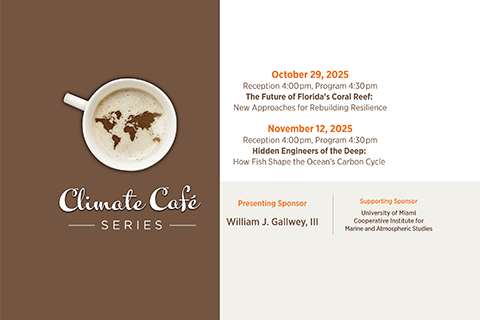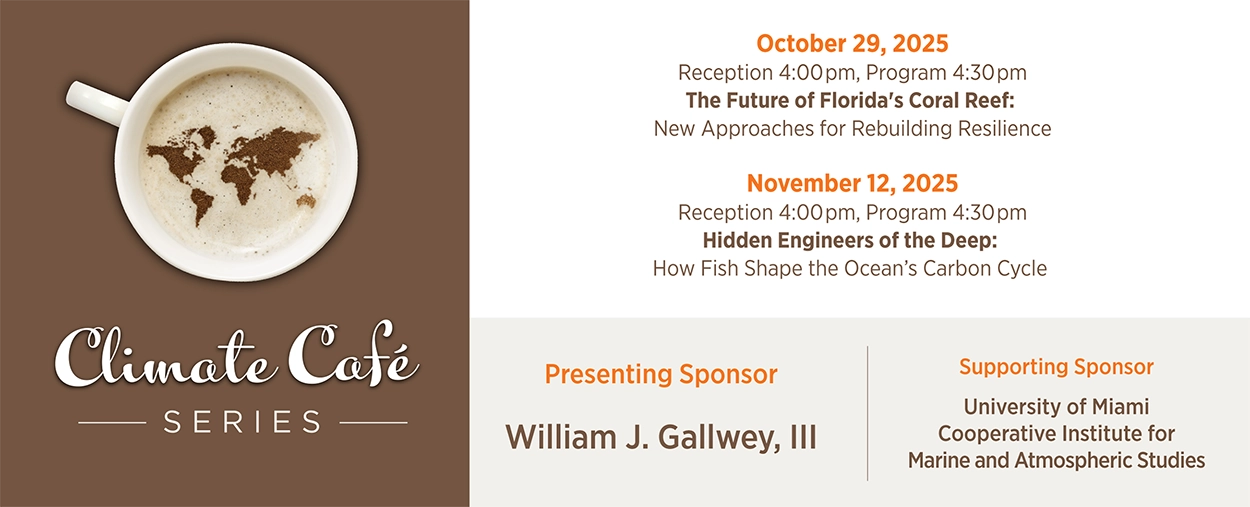The Climate Café series is a signature event of the Rosenstiel School that invites students and the community to learn about leading-edge climate and environmental science. Moderated by award-winning WLRN NPR environment reporter Jenny Staletovich, each event brings together Rosenstiel School faculty, collaborating scientists, graduate students, and local stakeholders to explore the science shaping South Florida’s future.
In a relaxed, interactive setting, participants can hear firsthand about groundbreaking research—from coral restoration to climate resilience—and join conversations about how these discoveries can guide policy, inform community action, and train the next generation of scientists. The goal: to spark dialogue, inspire solutions, and connect cutting-edge science with the people it impacts most.
2025 Program:
The Future of Florida's Coral Reef: New Approaches for Rebuilding Resilience
A timely conversation on the future of Florida’s Coral Reef—an ecosystem under mounting stress from warming seas, disease, and pollution. Scientists from the Rosenstiel School and its NOAA Cooperative Institute for Marine and Atmospheric Studies (CIMAS) will share groundbreaking efforts to restore resilience, from cross-bred “Flonduran” corals to microbe-assisted coral rearing. Learn how innovative strategies and surprising insights from “urban corals” are shaping new approaches to safeguard biodiversity, fisheries, and coastal communities.
Hidden Engineers of the Deep—How Fish Shape the Ocean’s Carbon Cycle
We dive into the hidden role of deep-sea fish in regulating Earth’s carbon cycle. Rosenstiel School scientists will share new research revealing how mesopelagic species—nearly 94% of the world’s fish biomass—excrete minerals that shape ocean chemistry and influence climate. Join us for an eye-opening conversation about the ocean’s “chemical engineers” and their role in our changing planet.
2025 Schedule for all Climate Cafés:
4:00p.m. Reception at Salt Waterfront, 4:30p.m. Program in auditorium.






